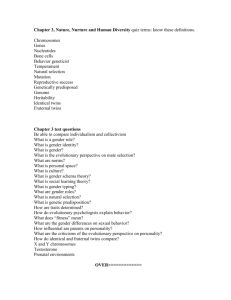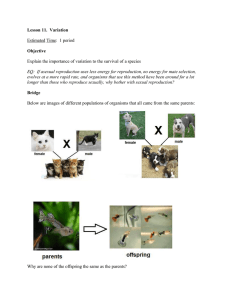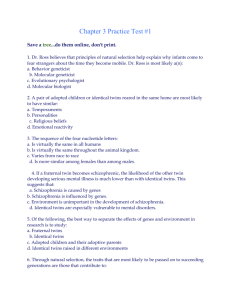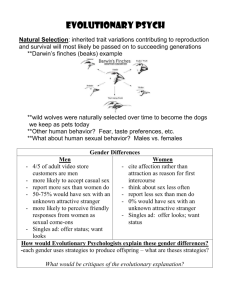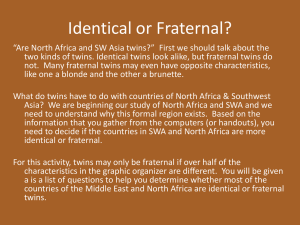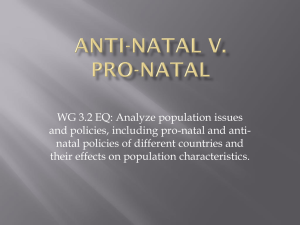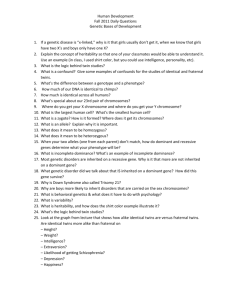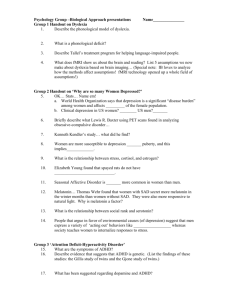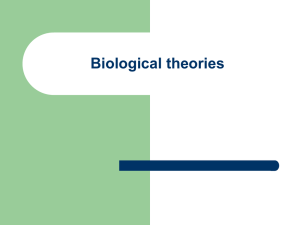A.P. Psychology 3-C (B)
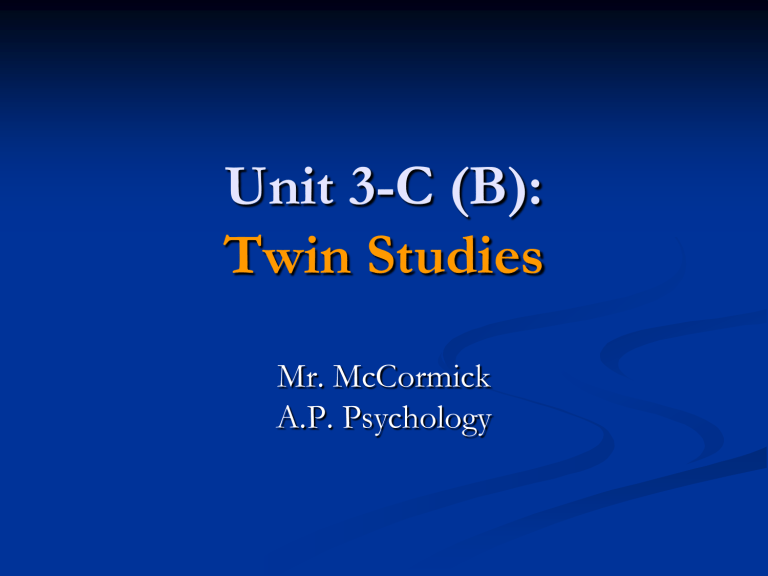
Unit 3-C (B):
Twin Studies
Mr. McCormick
A.P. Psychology
Do-Now
(Discussion)
Think about someone you know who was adopted as a
child:
In what ways are their personalities similar to their adoptive parent(s) ? In what ways are they different?
In what ways are their personalities similar to their biological parent(s) , if known?
What do you feel has a greater influence on one’s personality – one’s biological make-up or one’s familial environment ?
Identical Vs. Fraternal Twins
Identical Twins:
Twins who develop from a single fertilized egg that splits in two, creating genetically identical organisms
Same sex only
Fraternal Twins:
Twins who develop from separate fertilized eggs
Genetically no closer than brothers and sisters, but they share a fetal environment
Same or opposite sex
Identical Vs. Fraternal Twins
Identical Vs. Fraternal Twins
Separated Twins
Identical twins who have been separated since birth tend to share many cognitive, behavioral, and
social similarities with one another (more so than fraternal twins).
Adopted children tend to share many cognitive,
behavioral, and social similarities, with both their
adoptive and biological parents; however, there tend to be stronger similarities with biological parents .
Genetics, Environment, and Personality:
Twin Studies
Assignment:
Read “Genetics, Environment, and Personality”
Answer Questions #1-3
Review
Differentiate between Identical Twins and Fraternal
Twins in terms of the following:
Prenatal Development
Genetic Make-up
Physical Appearance
To what extent do you attribute Nature and Nurture to the following:
Physical Appearance
Personality
“Intelligence”/IQ
Homework
Research Study Response #3: “Are You a ‘Natural?’”(Pgs. 19-27)
Chapter 4 Quiz: “Nature, Nurture, and Human Diversity”
Unit 3 Test: “Biological Bases of Behavior”
Chapter 6 Outline: “Sensation and Perception”
Unit 3 Project: “3-D Brain Model”
